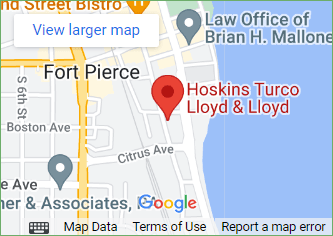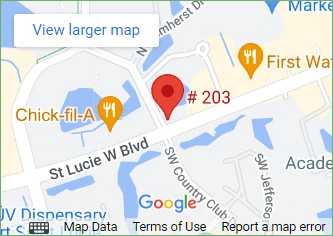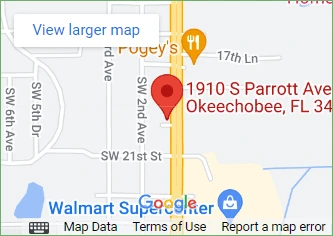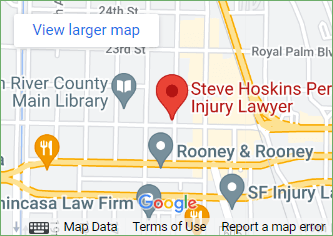Auto Accident Settlement
How Should I Prepare for My Bankruptcy Consultation?
You may have found yourself in the same situation millions of others have. Your income simply does not cover your debts, and you are being hounded by collection agencies. If you have discovered that you can no longer keep up with your bills, and you are starting to feel as though you are drowning, it’s important to know that options for alleviating your debt still exist. Filing for bankruptcy is a viable choice for many.
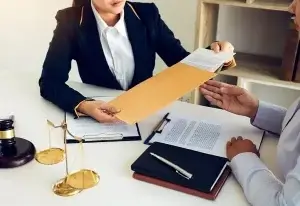
Is Bankruptcy Right For You?
While bankruptcy can resolve your financial hardships in many instances, it’s not a decision to be taken lightly. Filing for this type of financial relief will definitely impact your ability to obtain credit in the future. You may also be required to sell some of your assets to settle your debt, particularly if you choose to file for Chapter 7 bankruptcy. There are also costs associated with filing a bankruptcy case that needs to be considered.
All of this said, if you are at the point of considering bankruptcy, your credit has already taken a tremendous hit. Once your bills are late, companies begin reporting you as such to the credit bureaus. The more late payments on your record, the bigger the negative impact on your credit. It becomes a never-ending cycle that you can’t escape from.
More importantly, pressure from creditors will begin to impact your life. You may be tempted to look to solutions that promise a quick fix, like debt consolidation loans, that may ultimately saddle you with the same amount of debt but higher interest.
Filing for bankruptcy is the only way to get protection from the legal system from creditor harassment, and it is the only way to resolve debts once and for all, aside from immediate payment in full.
If you are thinking of filing bankruptcy, call (866) 460-1990 to schedule an appointment with a qualified bankruptcy attorney at Hoskins, Turco, Lloyd & Lloyd. Our experienced Florida bankruptcy attorneys will walk you through the process personally and help you make the best decision for your financial situation.
Preparing For Your Consultation
The first thing you will want to do after your consultation is scheduled is to begin gathering documents. You should bring copies of recent bank balance statements to reveal your income and expenses. Collect pay stubs, tax documents, and any paperwork you receive from Social Security or unemployment. Also, bring any documentation related to child support or alimony orders. Put together all loan documents, credit card account statements, and all monthly bills. While you won’t be able to discharge debts related to utilities and other routine expenses through your filing, your rolling monthly expenses factor into your ability to pay and how much disposable income the courts will consider available for repaying debt.
One other thing to determine is whether you have property or assets that you want to retain possession of. For example, if you are current on your mortgage, you may want to keep your home. If you are behind on your car payments, you may be willing to give it up. You and your Florida bankruptcy attorney can discuss what makes the most sense in your unique situation.
Know the Difference Between Chapter 7 and Chapter 13 Bankruptcy
If you decide that bankruptcy is right for you, there is another decision you will have to make: filing Chapter 7 versus filing Chapter 13. To prepare you for going through this decision with an attorney, here is a brief explanation of each.
Chapter 7
When you choose to file Chapter 7 bankruptcy, you are able to discharge most of your unsecured debts after you have liquidated all non-exempt property and used it to pay down as much as possible. You may be able to keep some of your property, and in fact, many Chapter 7 petitioners have enough exemptions that their case is considered a “no-asset” bankruptcy. However, know that keeping your house from going into foreclosure is not guaranteed since secured assets aren’t eligible for discharge. Also, know that your creditors do have the option to contest the discharge of their debt in some cases, though it’s rare for this to occur.
In order to file for Chapter 7 bankruptcy, you must be able to prove financial hardship. Therefore, you cannot have assets and income that exceed the threshold set by the U.S. Bankruptcy courts. Much of your income may be exempt, however, especially if it goes towards necessary expenses.
Should you not qualify for Chapter 7 bankruptcy, there is still the option to file under Chapter 13 rules.
Chapter 13
For some people, particularly those who earn an income above Chapter 7 eligibility thresholds, filing Chapter 13 makes better sense. This type of filing provides a way to restructure your debts and pay them on a reasonable timetable. You and your attorney work with your creditors to come up with a repayment plan that typically spans between three and five years. If you are in danger of the imminent loss of your home to foreclosure, you and your attorney may decide on Chapter 13 as a way to save your home.
Once your payment plan has been completed, the remaining unsecured debts you held when you filed will likely be eligible for discharge.
Automatic Stay
For both Chapter 13 and Chapter 7, petitioners are granted an “automatic stay” that protects them from any collection actions by creditors. The stay lasts for the duration of the bankruptcy filing process. During this time, creditors cannot contact you, garnish your wages, or take efforts to collect on their debt. Secured creditors may be able to repossess items used as collateral, but they typically will have to obtain a court order to do so.
An automatic stay is a very important protection for people with significant debts because it grants them much-appreciated temporary relief while they work with the courts to resolve their debts.
We Are Here To Help You Out Of Your Financial Troubles
At the end of the day, if you are over your head in debt and what’s coming in can’t cover what needs to go out, much fewer interest charges and late fees, bankruptcy can be your lifeline. The stigma surrounding bankruptcy is an unfair one. Bankruptcy has helped millions of people in financial straits and it can help you and your family as well.
The time has come to feel that weight lift off your shoulders. You will be amazed at how easy it will be to breathe again once there is an end to your financial struggles in sight. Call Hoskins, Turco, Lloyd & Lloyd at (866) 460-1990 or contact us online to schedule your free bankruptcy consultation.
Verdicts and Settlements
$1.2 Million
$1.6 Million
Wrongful Death Settlement
$11.1 Million
Settlement for motorcycle accident
Locations
Ft. Pierce, FL 34950
Suite 203, Port St. Lucie, FL 34986
Okeechobee, FL 34974
Vero Beach, FL 32960
The hiring of a lawyer is an important decision that should not be based solely upon advertisements. Before you decide, ask us to send you free written information about our qualifications and experience.
We are a debt relief agency and attorneys. We help people file for Bankruptcy relief under the Bankruptcy Code. The hiring of a lawyer is an important decision that should not be based solely upon advertisements. Before you decide, ask us to send you free information about our qualifications and experience.
Hoskins, Turco, Lloyd & Lloyd © 2020 All Rights Reserved. Terms of Use and Privacy Policy
This site is protected by reCAPTCHA and the Google Privacy Policy and Terms of Service apply.
